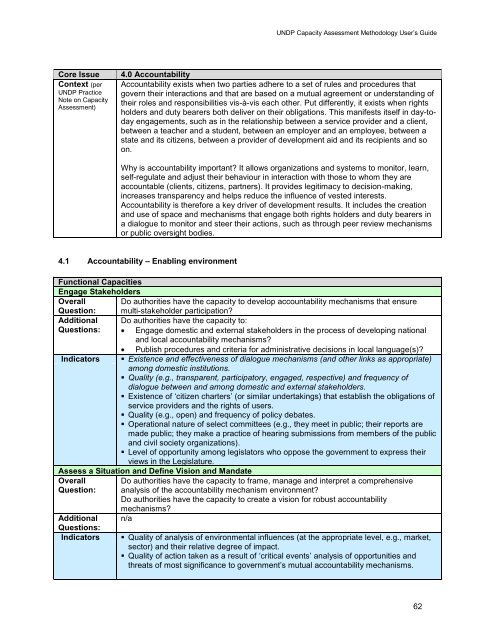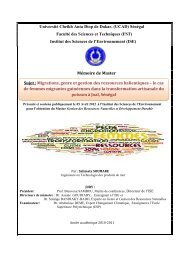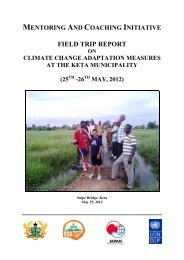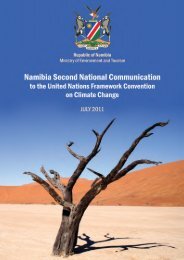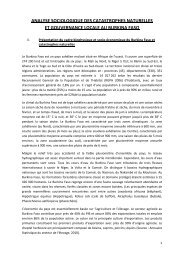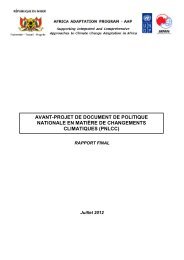UNDP Capacity Assessment Users Guide.pdf - Africa Adaptation ...
UNDP Capacity Assessment Users Guide.pdf - Africa Adaptation ...
UNDP Capacity Assessment Users Guide.pdf - Africa Adaptation ...
Create successful ePaper yourself
Turn your PDF publications into a flip-book with our unique Google optimized e-Paper software.
<strong>UNDP</strong> <strong>Capacity</strong> <strong>Assessment</strong> Methodology User‘s <strong>Guide</strong>Core IssueContext (per<strong>UNDP</strong> PracticeNote on <strong>Capacity</strong><strong>Assessment</strong>)4.0 AccountabilityAccountability exists when two parties adhere to a set of rules and procedures thatgovern their interactions and that are based on a mutual agreement or understanding oftheir roles and responsibilities vis-à-vis each other. Put differently, it exists when rightsholders and duty bearers both deliver on their obligations. This manifests itself in day-todayengagements, such as in the relationship between a service provider and a client,between a teacher and a student, between an employer and an employee, between astate and its citizens, between a provider of development aid and its recipients and soon.Why is accountability important? It allows organizations and systems to monitor, learn,self-regulate and adjust their behaviour in interaction with those to whom they areaccountable (clients, citizens, partners). It provides legitimacy to decision-making,increases transparency and helps reduce the influence of vested interests.Accountability is therefore a key driver of development results. It includes the creationand use of space and mechanisms that engage both rights holders and duty bearers ina dialogue to monitor and steer their actions, such as through peer review mechanismsor public oversight bodies.4.1 Accountability – Enabling environmentFunctional CapacitiesEngage StakeholdersOverall Do authorities have the capacity to develop accountability mechanisms that ensureQuestion: multi-stakeholder participation?Additional Do authorities have the capacity to:Questions: Engage domestic and external stakeholders in the process of developing nationaland local accountability mechanisms?Publish procedures and criteria for administrative decisions in local language(s)?Indicators • Existence and effectiveness of dialogue mechanisms (and other links as appropriate)among domestic institutions.• Quality (e.g., transparent, participatory, engaged, respective) and frequency ofdialogue between and among domestic and external stakeholders.• Existence of ‗citizen charters‘ (or similar undertakings) that establish the obligations ofservice providers and the rights of users.• Quality (e.g., open) and frequency of policy debates.• Operational nature of select committees (e.g., they meet in public; their reports aremade public; they make a practice of hearing submissions from members of the publicand civil society organizations).• Level of opportunity among legislators who oppose the government to express theirviews in the Legislature.Assess a Situation and Define Vision and MandateOverallQuestion:AdditionalQuestions:IndicatorsDo authorities have the capacity to frame, manage and interpret a comprehensiveanalysis of the accountability mechanism environment?Do authorities have the capacity to create a vision for robust accountabilitymechanisms?n/a• Quality of analysis of environmental influences (at the appropriate level, e.g., market,sector) and their relative degree of impact.• Quality of action taken as a result of ‗critical events‘ analysis of opportunities andthreats of most significance to government‘s mutual accountability mechanisms.62


